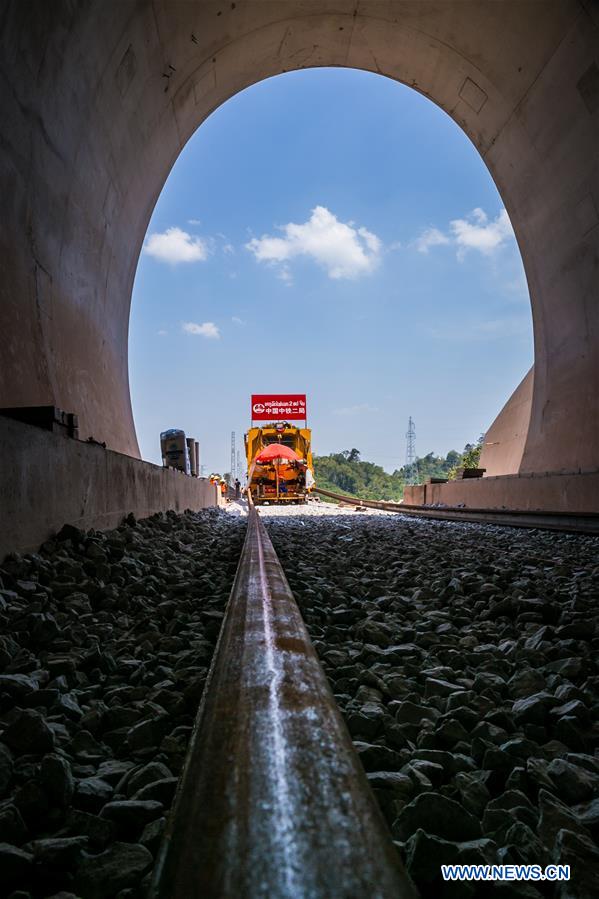
Lao and Chinese workers and engineers from China Railway No. 2 Engineering Group work together to lay the tracks through the Ban Nong Khay Tunnel, in Vientiane Province, some 60 km to the north of capital Vientiane, Laos, on May 23, 2020. As each row of 14 cement sleepers laid smoothly across the Ban Nong Khay Tunnel at the prescribed distance and then the 500-meter long tracks settled on the sleepers precisely by the engineering train, China-Laos Railway's tracks has passed its first tunnel on Saturday. (Photo by Kaikeo Saiyasane/Xinhua)
VIENTIANE, May 23 (Xinhua) -- As each row of 14 cement sleepers laid smoothly across the Ban Nong Khay Tunnel at the prescribed distance and then the 500-meter long tracks settled on the sleepers precisely by the engineering train, China-Laos Railway's tracks has passed its first tunnel on Saturday.
The 661-meter-long Ban Nong Khay Tunnel is located in Vientiane Province, some 60 km to the north of Capital Vientiane, at the juncture of central and northern Laos' plains and mountains.
Lei Chao, secretary of the Communist Party of China (CPC) working committee at the China Railway No. 2 Engineering Group (CREC-2) railing base, which undertakes the track laying of the China-Laos railway, told reporters that amid the COVID-19 pandemic, the CREC-2 has been actively planned the work and mobilized over 700 Laotians and 200 Chinese engineers and workers who cooperated closely and effectively, raising the railing speed from two km per three days at the beginning to 1.5 km daily now.
The track laying work was kicked off on March 27 in Vientiane.
The 414-km railway, with 198-km tunnels and 62-km bridges, will run from Boten border gate in northern Laos, bordering China, to Vientiane with an operating speed of 160 km per hour.
The electrified passenger and cargo railway is built with the full application of Chinese management and technical standards.
The project started in December 2016 and is scheduled to be completed and open to traffic in December 2021.